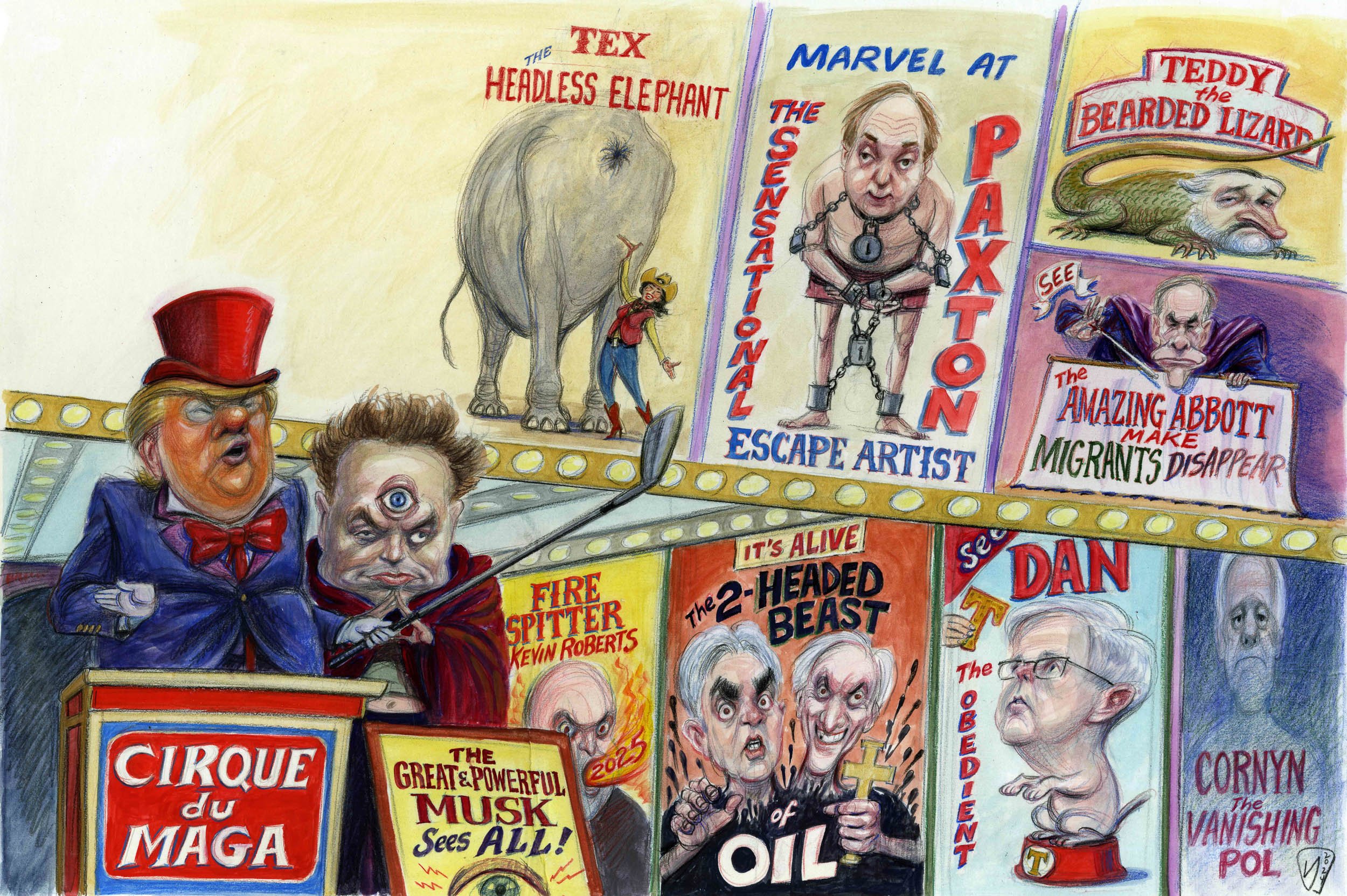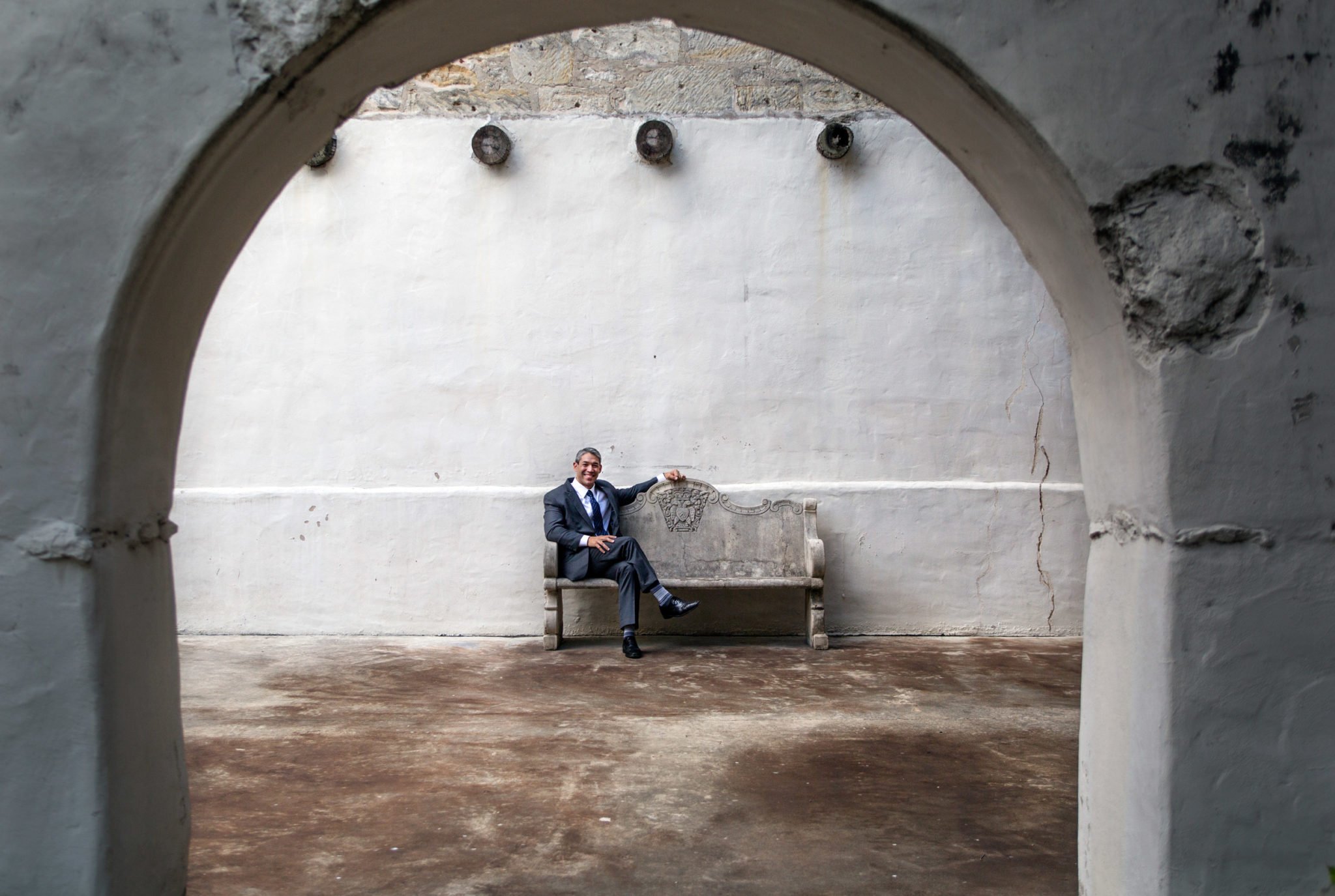
New San Antonio Mayor Ron Nirenberg on Priorities, Progressives and the Legislature
Nirenberg doesn’t identify with a specific political party, but thinks future-focused candidates are in a prime position to take back the state.
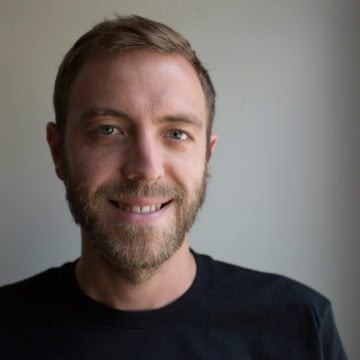
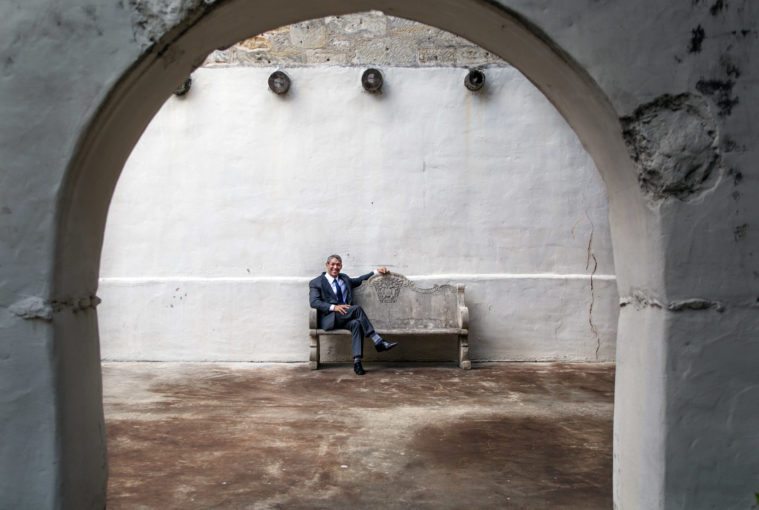
Ron Nirenberg assumed office in June after defeating former Mayor Ivy Taylor with 54 percent of the vote in a runoff election. Like Taylor, Nirenberg’s job performance will likely be compared to the tenure of Julián Castro, San Antonio’s most high-profile mayor since Henry Cisneros. Nirenberg is a 40-year-old policy nerd who served four years on City Council before running for mayor. Profiles usually note that he plays the trombone and is a weightlifter. (The San Antonio Express-News called him a “weight-lifting daddy ready to rock out.”)Though he ran against Taylor mostly from the left, he isn’t overtly partisan and wields less politically charged rhetoric than Castro. Still, Nirenberg has been to the Capitol several times this year to oppose legislation, such as the “bathroom bill” and the “sanctuary cities” ban, that he sees as harmful to the people and government of San Antonio. I sat down with Nirenberg last month as he was still getting comfortable in his new, bigger City Hall office.
Q: The mayoral election was nonpartisan, but it’s fair to say that you were seen as a more progressive candidate than the incumbent Ivy Taylor. Can you draw any conclusions about the upcoming midterm elections based on yours? Do you foresee a trend of progressive challengers beating conservative incumbents?
Oh gosh. I am not a political consultant. For me, progress is a good word. It’s not really a political party. Is this sort of the leading edge of something larger that’s happening in Texas? You know, I was just talking to a friend of mine on the Dallas City Council and he said there was a very similar thing that happened in their recent elections where several new, more future-focused council members were elected — more progressive. If the work really gets done at the local level and we are representing the same constituents that the folks in Austin are, I would imagine that this is the start of a better Texas in terms of its politics.
San Antonio is nearly two-thirds Hispanic. State demographers are projecting Hispanics will make up more than half of Texas in about 20 years. What do you think Texas can learn from San Antonio?
We like to say we’re America’s 21st century city. That’s what we’re talking about. Not just the demographics but also the challenges we face and how we address them. Hopefully, people can learn from San Antonio and how we address some of the significant challenges we see in urban communities.
I represented in District 8, on the Northwest Side, a very diverse district, maybe leaning slightly conservative but demographically mixed and I was able to work toward fairly progressive solutions to significant challenges. Infrastructure and environmental issues, working with constituencies like our largest refugee population in San Antonio, without having to hide away from what those challenges are. That tells me that a lot of these things that progressive elected officials work on that sometimes make people’s blood pressure rise who are more conservative simply need to be communicated better across the community of why it’s important.
One of our challenges in San Antonio is connectivity. It’s not just about transportation, it’s getting people on the North Side to understand that investments in the bus system on the South Side are important for economic development, which builds jobs that their children are going to fill. Just getting people to understand that we’re all in it together has been a challenge that can be accomplished if, as an elected official. I’m willing to try.
What’s the biggest problem facing San Antonio?
Socioeconomic segregation. We have seen disinvestment in parts of our community that were redlined 80 years ago, or not even that long ago, that are now demanding attention and need to be invested in if we are really going to build equity in the basic services and infrastructure that the city provides. We do that because children who are raised in poverty have a significant disadvantage in achieving levels of education that can help break out of that cycle. Their parents are less likely to be home with them because they’re having to work two or three or four jobs just to make ends meet, so it contributes to a cycle in which it really does matter what ZIP code you live in to determine your outcome in life. Being able to break that cycle through investments, jobs and services like transportation and improving people’s streets and sidewalks, despite the fact that they might not turn out at the polls in the numbers that people in nice neighborhoods do, is a priority.
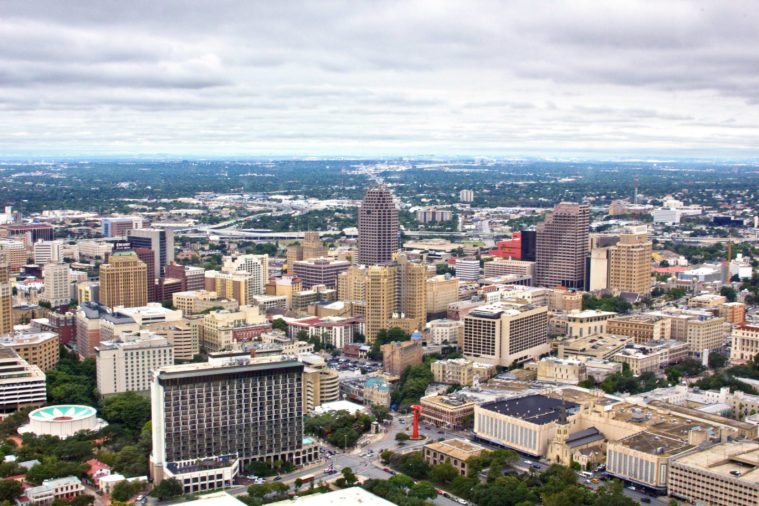
You were the grand marshal for this year’s San Antonio pride parade, and you’ve said you want to extend the nondiscrimination protections passed by the City Council in 2013 to the private sector. Is that a priority for you as mayor?
I want to make sure that the values of nondiscrimination, the fact that people that should not be discriminated against based on sexual orientation, gender identity, all these things, is not just for show, but that it is actually implemented. Yes, I do believe nondiscrimination is not just an important value in the public sector but it’s also important in the private sector, too. We have to see the temperature of the council and legally talk about how something like that could be pursued but, if you’re doing business in the public realm you shouldn’t be allowed to discriminate based on those things.
Does San Antonio have a policy that differs from state law when it comes to marijuana? Austin, Dallas and Houston have a cite-and-release option for police.
Not currently, no. I know the district attorney is interested in exploring not decriminalization, but… steps toward it.
Is that something that you’re in favor of?
So when we’re talking about controlled substances, I will always follow the lead of law enforcement. I am interested in increasing the compassionate uses [of medical marijuana], which is the first step for us. But I am interested, and I think we need to be for criminal justice reasons and community restoration reasons, too.
You and several top city officials, including San Antonio Police Chief William McManus, were publicly opposed to Senate Bill 4, the “sanctuary cities” ban. How do you think the new law will impact your city, where nearly two-thirds of residents are Hispanic?
I think it’s going to create a division and distrust between our law enforcement and the community members that they serve. I’m on the same page as our local law enforcement that this is bad for public safety, not to mention that it will likely do racial profiling. Beyond the immigration and the racial element to this, the kind of centralization of authority and the removing of elected officials, removing public officials from office unilaterally by the attorney general, is the kind of thing that if we were seeing this happening somewhere in the Eastern Bloc, we would be outraged because we’re pro-democracy.
Top Republicans like Dan Patrick and Abbott blame skyrocketing property taxes on city and county governments and are pushing a bill that would limit their ability to increase rates without elections. What do you think about that proposal?
It’s cheap politics, it’s checking a box so that it passes the fact check when they say they reduced the taxes, when in reality it’s provided no meaningful relief to any homeowner. What would provide relief is appraisal reform, maybe sale price disclosures. San Antonio has lowered our tax rate close to seven times in the last 20 years — the only thing a city can do to lower taxes. But the appraisals keep going up, and school district taxes keep going up because they need to have resources to put textbooks in front of students and teachers in classrooms.
Is the state Legislature underfunding education?
Schools are underfunded in my belief and many others. There are secondary impacts that are devastating. Frankly, the Legislature’s recent history of inadequately funding of public education has dramatic secondary impacts on generations of Texans that we don’t talk about. It has led to socioeconomic disparities that we see in cities. As the reduction of state funding has taken place, local communities have had to step up and that’s why you’re seeing school districts raise their taxes. This crisis of property taxes that has been created has been manufactured by the state looking elsewhere from its primary responsibilities.
Governor Greg Abbott vetoed $1.5 million meant for the Texas Commission on Environmental Quality (TCEQ). In San Antonio, that veto led to staff cuts at the Alamo Area Council of Governments (AACOG), and six air monitors were temporarily shut down. You’re an AACOG board member; what do you think motivated Abbott?
Because it’s easy politics. It takes time to communicate with people challenging concepts. Especially if your values are different. We need elected officials who are dedicated to the task of explaining why air quality matters for public health, for economic reasons; it’s cost avoidance of taking care of people in the hospital. We lost 52 people in Bexar County because of air pollution in 2015. Public health is not acceptable collateral damage to fulfill whatever political aims people have in Austin. If we had more public officials dedicated to the task of addressing these really serious issues that don’t necessarily grab people’s attention but are important and require focus and commitment and investment, I think we’d have better policymaking.
You have ambitious renewable energy goals. The state and federal government have different priorities. How do you achieve your goals with those obstacles?
Continue to show how it makes fiscal sense to do so. Building a resilient energy grid is cost-saving. Maybe not next year, but in 10, 20, 30 years it’s going to save us money in the long run. That’s a great opportunity for us to create jobs. And then, at the end of the day … it’s better for your kid’s health. I don’t argue with my doctor but sometimes I ask for a second opinion. When you ask for second, third and thousands more opinions from medical professionals and scientists that are all telling you the same thing, that bad air is bad for health, we should listen.
In one word each, can you describe Greg Abbott, Dan Patrick and Joe Straus?
[laughs] I’m gonna get in big trouble. … This is a trapdoor isn’t it? Texan, Texan and Texan.
This interview has been edited for length and clarity.


